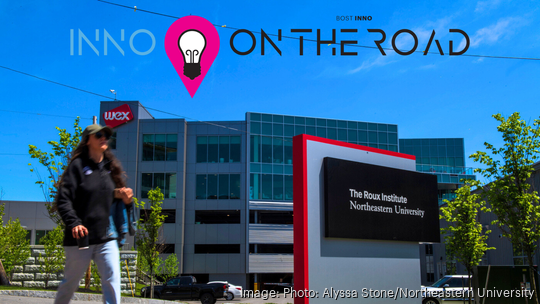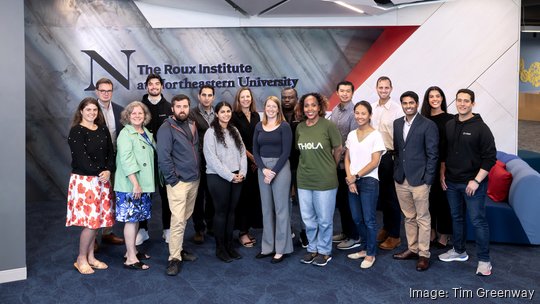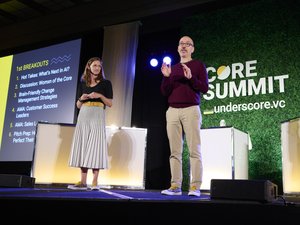
This story is part of a new BostInno series, Inno on the Road, that explores innovation communities around New England. This week, we explore Portland, Maine. Next week we’re headed to Western Massachusetts, and after that, we head north to New Hampshire.
Mainstays of the Maine startup ecosystem will already know its hallmark organizations and programs, including Startup Maine, which was born in 2014, and the Maine Center for Entrepreneurs, established in 1997.
Over the last few years, organizations with roots in other states, including Massachusetts-based Northeastern University and the nonprofit Entrepreneurship for All, have begun expanding into Maine. Not every experimental expansion has worked out, as evidenced by the shutdown of Techstars Portland earlier this year. But overall, these recent entrants to the ecosystem are introducing new resources to entrepreneurs and breathing new life into Maine’s startups.
There are some early signs that the new programs are bearing fruit.
There have been 68 venture capital funding announcements from Maine companies thus far in 2023, according to Crunchbase data. During the same time period last year, Crunchbase recorded 32 funding rounds. In 2021, there were 24. These numbers buck the national trend of a decline in funding during this period.
Maine founders, especially those from underrepresented communities, also told BostInno they’re seeing value in bringing more players and support systems into the ecosystem.
The launch of Roux Institute in Portland
In 2020, Northeastern University launched the Roux Institute in Portland to be an economic development engine for Maine through research, learning and entrepreneurship programs, according to Chris Wolfel, Northeastern’s associate vice president of entrepreneurship and venture creation.
For a brief period the Roux Institute collaborated with Techstars on an accelerator. Techstars, which operates more than 40 startup accelerators worldwide, launched a new Portland-based program with the Roux Institute in 2021. At the start of 2023, after two cohorts had been through the program, the accelerator ended.
Wolfel said the Roux wanted to focus on programs they could scale, like their own Founder Residency, which is for women, people of color, LGBTQ+, and other historically marginalized people to develop their tech-based, early-stage startups. The Roux’s entrepreneurship programs also include its Future of Healthcare Founder Residency and idea hackathons known as Start Summits.

With the launch of the Roux, Wolfel said they aimed to bring a more “traditional accelerator” model to Maine with “cash, curriculum, and coaching.”
The Roux also stands apart in Maine because its entrepreneurs benefit from connections to Northeastern’s learning and research enterprises in Portland and around the world, Wolfel said.
Another new entrant into Maine is the nonprofit Entrepreneurship for All (EforAll), which launched its business accelerator program in Maine earlier this year. Maine Technology Institute is providing a three-year sponsorship commitment to EforAll in the state. EforAll works with underrepresented entrepreneurs to start and grow businesses.
Obinna Okani, executive director of EforAll Maine, described the Maine entrepreneurship community as one that’s “close knit, but it’s not hard to find.”
Okani said EforAll came to Maine to fill a gap at the ideation stage.
“The role that I see EforAll fitting into the ecosystem is becoming a springboard for ideation and the incubation of that ideation, to then go onto some of the other organizations that are in the state,” Okani said. “I can see graduates of EforAll going to the Roux Institute. I can see graduates of EforAll going to (the Maine Center for Entrepreneurs’) Top Gun.”

New support for Maine startup founders
Helkin Berg, co-founder of hey freya, said the arrival of the Roux Institute changed the entrepreneurship game in Portland. Her startup curates health tests and supplements with a focus on women’s health and took part in the Roux’s Founder Residency and Techstars programs.
Berg has lived in Maine since 2009 and worked with startups in the state and beyond. She said the Roux has created a “huge center of gravity” in the region.
“I think what the Roux did was it coalesced all of these entrepreneurs and all of these incredible people who can be investors or mentors or both around a single point,” Berg said. “That, to me, having lived here for 15-ish years, feels new and feels incredible.”
Commuting from Portland to Greater Boston for meetings isn’t impossible. In fact, with Massachusetts’ traffic it’s comparable to driving into the city from Worcester. But Berg said it’s important for Maine to have its own startup ecosystem for its entrepreneurs.
“There are incredibly talented people that might not be able to, for a multitude of reasons, reside in the two hubs the U.S. has decided are the big ones, like Silicon Valley and New York, and Boston is also up there. And Boston is a very expensive city,” Berg said.
Building an equitable ecosystem from scratch
Berg said creating local support systems for entrepreneurs can also create more equity.
“I think it’s enabling a more level playing field, which benefits all of us. We get to then have innovation that can speak to more people,” Berg said. “If you’re always doubling down on the youth of Stanford, you’re always going to get sort of a certain type of idea that’s put forth and funded. And they’re not bad ideas, I just think there’s other ones as well.”
Wolfel said the Roux saw great opportunity and responsibility in their vision of shaping the state’s economy. That’s why some of its programming, including the Founder Residency, focus on supporting underrepresented entrepreneurs.
“Hopefully we can prevent building an ecosystem that honestly looks like the diversity challenges you see in Boston and San Francisco and Seattle,” Wolfel said. “If we focus really hard early to make sure that we are bringing founders in that represent the demographics of the world, then ideally our hypothesis is that’ll build momentum over time and potentially become a case study on how other cities and other regions can catalyze a more equal and more distributed ecosystem.”
Sign up for The Beat, BostInno’s free daily innovation newsletter from BostInno reporter Hannah Green. See past examples here.








